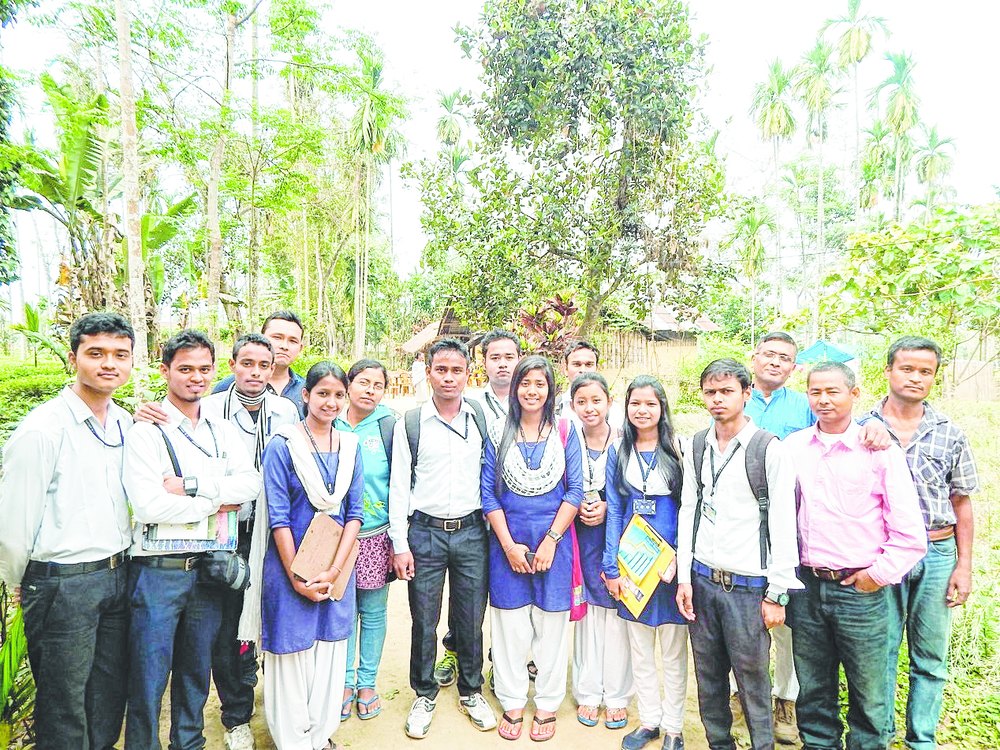
Jorhat, March 30: Almost five years after a couple were branded witches, tortured and turned out of their village near Doomdooma in Tinsukia district, the UN Human Rights Study Cell of JB College here conducted a survey, which revealed that nothing has changed in the Kordoiguri village area.
The mostly uneducated villagers are still steeped in superstitious beliefs and moreover, a large number of people are opium addicts.
Balin Hazarika, in-charge of the centre and professor in the political science department, JB College, led the team of 13 members - two teachers and 11 students.
He said though Kordoiguri, comprising the three villages of Kordoiguri, Dorjijan and Gotong, were 22km away from Doomdooma town in Tinsukia district, the people were least bothered about educating themselves.
"Most of the people have passed Class VIII or IX, and there were possibly half-a-dozen graduates among the 2,000 names in the voter list. The villages are dominated by the Moran community with a small portion belonging to the tea tribes community," he said.
The team had been divided into five groups and had covered 100 households in two days on March 24 and 25.
The surveyed were the eldest in the household, male or female, and a set of 27 close and open-ended questions were asked under five heads - education, political, economic, social and religious beliefs.
Hazarika said when asked whether they believed in witches and black magic, more than 90 per cent had answered in the affirmative.
Only one commerce graduate said he did not believe in witches.
Regarding how they suspected someone of being a witch, the answered varied from going into the woods frequently after darkness fell to having big eyes.
Hazarika said the economic condition reflected the lower middle classes' apathy to earn more.
"The people are satisfied that they can eat two square meals a day and are not bothered to go to Doomdooma College, just 22km away or study beyond matriculation. The people have small land holdings of two to three bighas on which mostly tea is grown because of the lay of the land. No rice is cultivated," he said.
Hazarika said opium was being smoked in most households, which was a cause of worry also to the Moran Students Union, as this promoted lethargy.
None of them even knew that the government was proposing the enactment of a separate anti-witchcraft law.
In 2010, Satyabati Moran of Gotong Gaon was branded a witch by the local bez and tortured along with her husband Kalia.
The duo fled leaving behind their land, Kalia's mother, a widow, to look after three adolescent sons and a grown-up daughter, taking only an infant daughter along with them.
They now reside in Doomdooma and Kalia works as a daily wage labourer while Satyabati earns Rs 1,000 by weaving six sadors per month.
The second son who tried to save his parents was so badly beaten up that the trauma lingers and he cannot speak to anyone without shifting his gaze in fear while giving out information.
The field study is the second phase of the cell to understand why witchcraft existed and create awareness on the issue.
Witch-hunt deaths
Assam agriculture minister Rakibul Hussain today said in the Assembly that 42 men and 36 women were killed in witch-hunting incidents in the state between January 2010 and February 2015.
He was replying on behalf of chief minister Tarun Gogoi, who also holds the home portfolio, to a question by suspended AIUDF MLA Sherman Ali Ahmed.
Hussain said the state government would enact a strict law to prevent witch-hunting incidents.
He informed the House that the additional director-general of CID has prepared a draft of the anti-witch hunting bill and submitted the same to the state home and political department.
Hussain said the draft was discussed at a meeting, which was chaired by the commissioner and secretary of the home department on February 5 and necessary modification was done.
"With the approval of the chief minister, the draft was sent to other departments like social welfare, personnel and judicial, for their comments," Hussain said.










